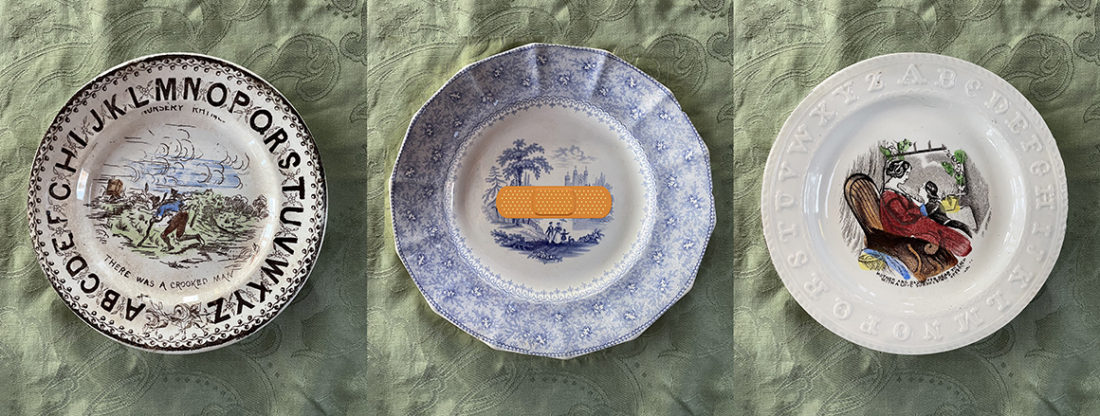When Margaret enters the basement playroom, she is not surprised by what she sees, but she is enraged nonetheless. Her three children, slumped here before her, have not cleaned. They have not even tidied. That is to say, they have not even bothered to shove armfuls of Lego and My Little Ponies under the stained IKEA sectional. They have not crammed their Nerf guns and hula hoops into the closet. Socks, roller skates, plastic plates with dried pools of ketchup – and of course toys – cover the floor. Margaret has been reading about the gigantic patches of garbage floating in the ocean, and this is what she is reminded of when she takes in the sight of the playroom.
To be fair, Margaret is, at her core, enraged about other things. She is enraged by the virus that makes her want to hold her breath every time she goes outside. She is enraged that she is now de-facto principal of a little home school, even more enraged that her pupils resist all efforts to be educated. She is enraged that instead of being upstairs at the kitchen table learning things, they are lazing about this messy playroom. She is enraged that in her division of labor with her husband, she has always been the one to handle communication with the children’s teachers, and now, with little reflection or conversation, she is the teacher.
“It’s like you can’t even see what needs to be done,” Margaret says, turning her palms upward and gesturing about the room. She grabs a fistful of dirty paintbrushes, their bristles stiff with dried tempera paint. “These are ruined,” she says, shaking the brushes into the air. She holds the brushes to her nose like she’s sniffing a bouquet, then shoves them into the face of her eight-year-old daughter Cora, her first born. “Smell that,” she commands. “What does that smell like?”
“Paint,” says the girl, looking at the floor.
“That’s right,” she says. “Paint. A clean paintbrush doesn’t smell like paint.”
“What does it smell like?” says Julian. Julian, middle child, expert at feigned nonchalance.
Margaret tosses the paintbrushes aside. They clatter to the concrete floor. “And why are there dice everywhere? What games are these from?”
The children shrug.
“Well the games will be useless if you don’t put the pieces away. You think I can just waltz out to the store and buy new toys? What part of ‘pandemic’ do you not understand?”
Margaret’s eyes skip to the play kitchen. The child-sized pot on the toy stove brims with dark pink liquid. “What’s in that pot?”
The children turn their heads in unison. “Cora’s potion,” Julian says with a casual tone.
“It’s not just my potion, you and Rory helped too!”
“What did you put in here?” Margaret demands.
“Do you mean what are the ingredients?” Julian asks.
“Don’t give me that,” Margaret snaps.
“It started out just water and glitter,” Cora says. “Then the boys started putting a bunch of gross stuff in it.”
“You were the one who put in the mayonnaise, Cora,” says Julian.
“Not until after you put in the salsa!”
“Well you better clean it up and you better not spill any on the rug,” Margaret says. “Next time I come in here I’m going to bring a garbage bag. Anything not put away is going straight in the trash. Or maybe I’ll find some kids who will appreciate these toys, because you all don’t. Do you hear me?”
The children go as still as stuffed animals. Margaret’s eyes land on her youngest child, sitting in the corner. He still has the thick arms and padded hands of a toddler, but he’s nearly five.
“Rory, get your thumb out of your mouth. You’re too old for that nonsense.” She crosses the room toward the boy. She tries to stomp her feet but is stymied by the need to pick her way through the scattered playthings. Reaching him, she snatches his thumb from his mouth, and grabs his threadbare blankie while she’s at it. The child’s brown eyes fill with tears. He takes a deep breath in. Margaret braces herself for the wail that will come when he exhales.
Instead, Cora swoops in, and wraps her arm around her brother. The little boy rests his dark curls on his sister’s shoulder. Where has Cora learned this, Margaret wonders. Where has she learned to play the part of the mother hen? What will it mean when she’s older? Will she sacrifice her freedom for a family, only to become a woman who screams at her children over strewn toys? Even in this moment, Margaret sees the need to break this cycle.
And yet, she needs Cora. She needs someone to be tender with Rory in these instants when she cannot find it within herself.
Rory takes another breath and lets out a shaky sigh. His sister kisses his head. Behind her, Margaret hears Julian tossing matchbox cars into a bin. Each time he lands one, he says, “two points!”
Margaret looks at the tattered patch of blanket she holds in her hand. Forgetting herself, she lifts it to her face. It smells of Rory—a faintly sweet scent that reminds her of Graham crackers dipped in milk. Margaret feels the two halves of her heart pushing against each other like magnets with opposite poles. There is the half that wants to be far from this place, alone; and there is the half that wants to scoop up her children and love them perfectly. Of all the things she wants, a clean playroom is least among them. But it is the only thing within her reach.
“I’m going upstairs to throw this in the washer,” she says, folding the blanket. “Get this place cleaned up and I’ll make us some lunch.”
- Margaret in the Playroom - December 1, 2021

